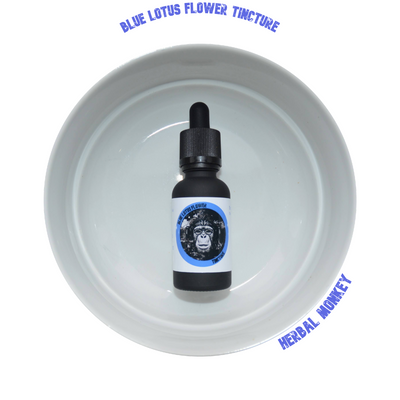
Discover the benefits of Blue Lotus Tincture, a powerful herbal remedy for various health concerns.
Blue Lotus Tincture is a herbal remedy that is derived from the Blue Lotus flower, scientifically known as Nymphaea caerulea. This flower has been used for centuries in traditional medicine for its therapeutic properties.
The tincture is made by extracting the active compounds from the Blue Lotus flower using alcohol or another solvent. This concentrated liquid form allows for easy consumption and absorption of the beneficial compounds.
Blue Lotus Tincture is known for its calming and relaxing effects on the mind and body. It is often used to promote a sense of tranquility and reduce stress and anxiety.
Additionally, Blue Lotus Tincture is believed to have aphrodisiac properties and may enhance sexual experiences. It is also known for its potential analgesic and anti-inflammatory effects.
Overall, Blue Lotus Tincture is a versatile herbal remedy that offers various health benefits and has been used for centuries in traditional medicine.
Blue Lotus Tincture offers a range of potential benefits for overall health and well-being.
One of the main benefits of Blue Lotus Tincture is its ability to promote relaxation and reduce stress and anxiety. It is believed to have a calming effect on the nervous system, helping to alleviate feelings of tension and promote a sense of tranquility.
Additionally, Blue Lotus Tincture may have mood-enhancing properties and can uplift the spirits. It is often used to promote a positive mood and enhance overall well-being.
Another potential benefit of Blue Lotus Tincture is its aphrodisiac properties. It is believed to enhance sexual experiences and increase libido. It may also help to alleviate sexual dysfunction and improve overall sexual health.
Furthermore, Blue Lotus Tincture may have analgesic and anti-inflammatory effects. It is often used to alleviate pain and reduce inflammation in the body.
It is important to note that while Blue Lotus Tincture offers many potential benefits, individual results may vary. It is always recommended to consult with a healthcare professional before starting any new herbal remedy.
Using Blue Lotus Tincture is simple and convenient.
The tincture is typically taken orally, either by placing a few drops under the tongue or mixing it with water or juice and consuming it.
The recommended dosage of Blue Lotus Tincture may vary depending on the individual and the specific product. It is important to follow the instructions provided by the manufacturer or consult with a healthcare professional for guidance.
It is also worth noting that Blue Lotus Tincture may have a slightly bitter taste. If desired, it can be mixed with honey or another sweetener to mask the taste.
As with any herbal remedy, it is important to use Blue Lotus Tincture responsibly and in moderation. If you have any underlying health conditions or are taking any medications, it is always recommended to consult with a healthcare professional before using Blue Lotus Tincture.
While Blue Lotus Tincture is generally considered safe for most people, it may cause some side effects in certain individuals.
Some people may experience mild gastrointestinal discomfort, such as nausea or stomach upset, when taking Blue Lotus Tincture.
In rare cases, an allergic reaction to Blue Lotus Tincture may occur. If you experience any symptoms of an allergic reaction, such as rash, itching, or swelling, discontinue use and seek medical attention.
It is important to note that Blue Lotus Tincture may interact with certain medications, such as sedatives or antidepressants. If you are taking any medications, it is advisable to consult with a healthcare professional before using Blue Lotus Tincture.
As with any herbal remedy, it is always recommended to start with a low dosage and gradually increase as tolerated. If you experience any adverse effects, reduce the dosage or discontinue use.
If you have any concerns or questions about potential side effects, it is best to consult with a healthcare professional.
Blue Lotus Tincture can be purchased from various online retailers and herbal stores.
When buying Blue Lotus Tincture, it is important to choose a reputable supplier to ensure the quality and purity of the product.
Read customer reviews and check for certifications or third-party testing to ensure that the Blue Lotus Tincture you purchase is of high quality.
Additionally, it may be helpful to consult with a healthcare professional or herbalist for recommendations on trusted brands or suppliers.
Remember to always follow the recommended dosage and usage instructions provided by the manufacturer.
In conclusion, Blue Lotus Tincture is a powerful herbal remedy that offers various health benefits. Whether you are looking to promote relaxation, enhance mood, improve sexual health, or alleviate pain, Blue Lotus Tincture may be a natural solution worth considering.
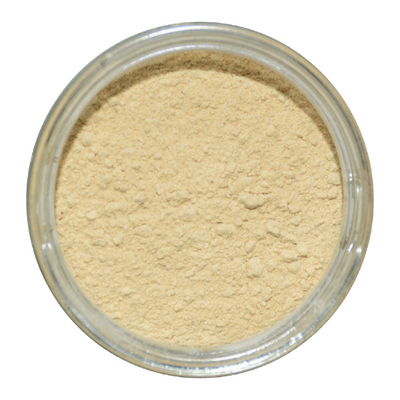
Discover the best ways to incorporate maca root powder into your daily routine for maximum benefits.
Maca root powder is a nutritious and versatile superfood derived from the maca plant, which is native to the high Andes mountains of Peru. It has been used for centuries as a natural remedy for various health issues and is known for its adaptogenic properties.
Maca root powder is rich in essential nutrients such as vitamins, minerals, and antioxidants. It is particularly high in vitamin C, copper, iron, and potassium. It also contains unique compounds called macaenes and macamides, which are believed to contribute to its health benefits.
One of the key benefits of maca root powder is its ability to support hormonal balance. It is often used to alleviate symptoms of menopause and improve fertility. Maca root powder is also known to enhance energy levels, boost mood, and improve cognitive function.
To understand maca root powder better, it is important to know the different types available. There are various colors of maca root powder, including yellow, red, and black. Each color has its own unique characteristics and potential health benefits. Yellow maca is the most common and is known for its energizing properties. Red maca is often used to support prostate health, while black maca is believed to enhance libido and sexual function.
When purchasing maca root powder, it is essential to choose a high-quality product. Look for organic and non-GMO options to ensure that you are getting the best possible benefits without any harmful additives or chemicals. You can find maca root powder in health food stores or online retailers.
With so many options available, it can be overwhelming to choose the right maca root powder for your needs. Here are some factors to consider:
1. Color: As mentioned earlier, different colors of maca root powder offer different benefits. Determine which color aligns with your specific health goals.
2. Source: Look for maca root powder that is sourced from reputable farms in Peru. This ensures that you are getting an authentic and high-quality product.
3. Organic and non-GMO: Opt for maca root powder that is certified organic and non-GMO. This guarantees that it is free from pesticides and genetically modified organisms.
4. Packaging: Choose maca root powder that is packaged in airtight containers to preserve its freshness and potency.
Remember to consult with a healthcare professional before incorporating maca root powder into your diet, especially if you have any pre-existing health conditions or are taking medications.
There are several ways to incorporate maca root powder into your daily diet. Here are some ideas:
1. Smoothies: Add a teaspoon or two of maca root powder to your favorite smoothie recipe. It blends well with fruits, vegetables, and other superfood powders.
2. Oatmeal or cereal: Sprinkle maca root powder over your morning oatmeal or cereal for an added nutritional boost.
3. Baked goods: Substitute a portion of flour with maca root powder in your baking recipes. This works well in muffins, pancakes, and energy bars.
4. Coffee or tea: Stir in a small amount of maca root powder into your coffee or tea for a unique and energizing twist.
5. Energy balls: Combine maca root powder with dates, nuts, and other ingredients to create delicious and nutritious energy balls.
Remember that maca root powder has a distinct flavor, so start with a small amount and gradually increase the dosage to suit your taste preferences.
In addition to incorporating maca root powder into your diet, there are other creative ways to use this versatile superfood:
1. Homemade face mask: Mix maca root powder with honey, yogurt, or other natural ingredients to create a nourishing face mask. Apply it to your skin and leave it on for 15-20 minutes before rinsing off.
2. DIY energy bars: Combine maca root powder with nuts, seeds, dried fruits, and sweeteners to make homemade energy bars. They are perfect for a quick and healthy snack on the go.
3. Maca latte: Make a delicious maca latte by mixing maca root powder with your choice of milk (dairy or plant-based), a sweetener of your choice, and a dash of cinnamon or nutmeg. Heat it on the stove or enjoy it cold.
4. Salad dressing: Add a teaspoon of maca root powder to your homemade salad dressing for an extra nutritional boost.
5. Maca-infused oil: Infuse maca root powder into your favorite carrier oil (such as coconut oil or olive oil) to create a nourishing oil that can be used for massages or as a moisturizer.
Get creative and experiment with different ways to incorporate maca root powder into your daily routine!
Here are some additional tips to keep in mind when using maca root powder:
1. Start with small amounts: Begin with a teaspoon or less of maca root powder per day and gradually increase the dosage as your body adjusts.
2. Be consistent: To experience the full benefits of maca root powder, incorporate it into your daily routine consistently.
3. Listen to your body: Pay attention to how your body responds to maca root powder. If you experience any adverse effects, reduce the dosage or discontinue use.
4. Consult a healthcare professional: If you have any concerns or questions about using maca root powder, it is always best to consult with a healthcare professional.
By following these tips, you can effectively incorporate maca root powder into your lifestyle and reap its numerous health benefits.
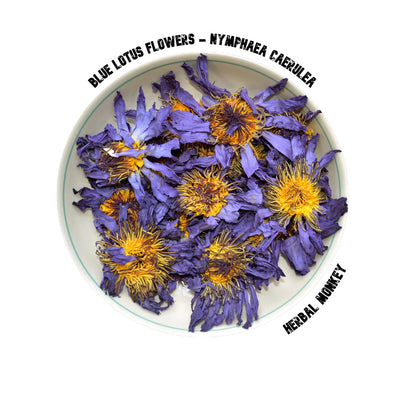
Discover the beauty and symbolism of the Blue Lotus Flower in the UK.
The Blue Lotus Flower holds great significance and symbolism in various cultures around the world. It is often associated with spirituality, purity, and enlightenment. The colour blue represents tranquillity and calmness, while the lotus flower symbolizes beauty, rebirth, and growth.
In ancient Egyptian mythology, the Blue Lotus Flower was considered sacred and was associated with the sun god Ra and the goddess of love, Hathor. It was believed to have healing properties and was used in religious rituals and ceremonies.
In Hinduism and Buddhism, the Blue Lotus Flower is considered a symbol of purity of body, speech, and mind. It is often depicted in art and is believed to represent enlightenment and spiritual awakening.
The Blue Lotus Flower also has medicinal properties and is used in traditional herbal medicine for its calming and relaxing effects. It is known to promote a sense of tranquillity and relieve stress and anxiety.
Overall, the Blue Lotus Flower is a powerful symbol of beauty, spirituality, and growth, and its presence in the UK adds a touch of serenity and elegance to any environment.
Although native to Egypt and other parts of Asia, Blue Lotus Flowers can be successfully cultivated and grown in the UK. The flowers require a warm and sunny climate to thrive, so it is important to create the right conditions for their growth.
Blue Lotus Flowers can be grown in containers or in ponds, as they prefer shallow water. The soil should be rich in nutrients and well-drained. Regular watering is necessary to keep the soil moist, but excessive water should be avoided to prevent root rot.
The flowers bloom during the summer months and require regular fertilization to promote healthy growth. It is important to protect the plants from frost during the winter season.
If you're interested in cultivating Blue Lotus Flowers in the UK, it is recommended to consult with local gardening experts or join online forums to learn more about the specific requirements and best practices.
Blue Lotus Flowers offer various benefits and have been used for different purposes throughout history. Here are some of the notable benefits and uses of Blue Lotus Flowers:
- Relaxation and Stress Relief: The flowers have natural sedative properties and can help promote relaxation and alleviate stress and anxiety.
- Sleep Aid: Blue Lotus Flowers are known for their calming effects and can be used as a natural sleep aid. They can help improve the quality of sleep and promote a sense of tranquillity.
- Mood Enhancement: The flowers have mood-lifting properties and can help improve overall well-being. They are often used to enhance mood and promote a positive mindset.
- Meditation Aid: Blue Lotus Flowers have been used in meditation practices for centuries. They are believed to enhance spiritual experiences and facilitate deep relaxation and concentration.
- Skin Care: Blue Lotus Flowers contain antioxidants and anti-inflammatory compounds that can benefit the skin. They are often used in skincare products to promote a healthy complexion and reduce signs of aging.
These are just a few examples of the many benefits and uses of Blue Lotus Flowers. Their versatility and natural properties make them a popular choice in various wellness and beauty practices.
The Blue Lotus Flower has been a prominent symbol in art and culture for centuries. Its vibrant blue colour and graceful form make it a popular subject for paintings, sculptures, and other artistic expressions.
In ancient Egyptian art, the Blue Lotus Flower was often depicted in hieroglyphics, tomb paintings, and temple carvings. It was associated with the afterlife and was believed to provide protection and guidance to the deceased.
In Hindu and Buddhist art, the Blue Lotus Flower is often depicted as a sacred symbol. It is commonly seen in paintings, statues, and mandalas, representing spiritual enlightenment and transcendence.
The Blue Lotus Flower has also inspired poets, writers, and musicians. Its beauty and symbolism have been praised in numerous works of literature and songs, capturing its essence and significance in human culture.
Today, the Blue Lotus Flower continues to inspire artists and is cherished for its aesthetic appeal and deep spiritual meaning.
If you are interested in experiencing the beauty of Blue Lotus Flowers in the UK, there are several places where you can find them:
- Botanical Gardens: Many botanical gardens across the UK feature dedicated sections for water plants and exotic flowers, including Blue Lotus Flowers. These gardens provide a serene and picturesque environment to admire these enchanting blooms.
- Nurseries and Garden Centres: Some nurseries and garden centres specialize in aquatic plants and offer a variety of water flowers, including Blue Lotus Flowers. You can visit these establishments to purchase Blue Lotus plants for your own garden or pond.
- Online Retailers: There are several online retailers that specialize in selling aquatic plants and flowers. They offer a wide range of options, including Blue Lotus Flowers, and deliver them directly to your doorstep.
When visiting these locations or making online purchases, it is important to ensure that the plants are sourced ethically and sustainably. This helps support responsible cultivation practices and protects the natural habitat of these beautiful flowers.
So, whether you're a nature enthusiast, a gardening enthusiast, or simply someone who appreciates the beauty of flowers, don't miss the opportunity to witness the elegance and charm of Blue Lotus Flowers in the UK.
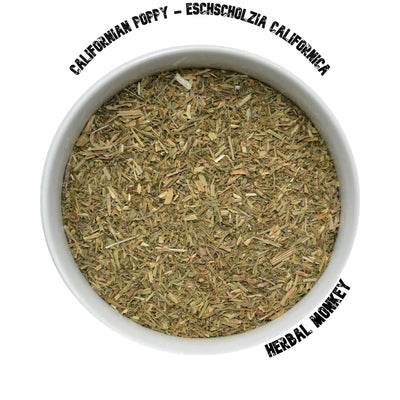
Discover the amazing benefits of Californian Poppy and how it can improve your overall well-being.
Californian Poppy, also known as Eschscholzia californica, is a flowering plant native to California and other parts of North America. It has a long history of traditional use among indigenous communities for its medicinal properties.
The plant gets its name from Johann Friedrich von Eschscholtz, a Russian-German botanist who first discovered it during an expedition to California in the early 19th century.
Today, Californian Poppy is widely cultivated for its vibrant orange flowers and is used for various health benefits.
Californian Poppy has a range of health benefits that can promote overall well-being. Here are some of its key benefits:
- Natural pain relief: Californian Poppy has analgesic properties, which means it can help alleviate pain and discomfort. It is often used as a natural alternative to over-the-counter pain medications.
- Relaxation and stress relief: The plant is known for its calming effects and is often used to reduce anxiety and stress. It can help promote relaxation and improve mood.
- Sleep aid: Californian Poppy has sedative properties, making it useful for promoting restful sleep. It can help individuals who struggle with insomnia or have difficulty falling asleep.
- Anti-inflammatory properties: The plant contains compounds that have anti-inflammatory effects. It can be used to reduce inflammation and swelling in the body.
- Antioxidant activity: Californian Poppy is rich in antioxidants, which can help protect the body against oxidative stress and damage caused by free radicals.
These are just a few of the many health benefits that Californian Poppy offers.
Californian Poppy has been used for centuries to help alleviate anxiety and reduce stress. It contains compounds that act on the central nervous system, promoting a sense of calm and relaxation.
Many people find that incorporating Californian Poppy into their daily routine can help them manage stress and anxiety more effectively. It can be taken in various forms, including dried herb, tincture, or tea.
It is important to note that while Californian Poppy can be beneficial for mild to moderate anxiety and stress, it may not be suitable for severe cases or as a replacement for professional medical advice. It is always recommended to consult with a healthcare professional before starting any new herbal remedy.
If you struggle with sleep issues such as insomnia or difficulty falling asleep, Californian Poppy may offer some relief. The plant has sedative properties that can help promote a restful night's sleep.
Californian Poppy can be taken in various forms to aid sleep, including dried herb, capsules, or as a tea before bedtime. Its calming effects can help quiet the mind and relax the body, making it easier to fall asleep and stay asleep throughout the night.
It is important to follow the recommended dosage and consult with a healthcare professional if you have any underlying health conditions or are taking medication.
In addition to its benefits for anxiety, stress relief, and sleep, Californian Poppy has other potential uses and considerations:
- Mild sedative for children: Californian Poppy is sometimes used as a gentle sedative for children who have trouble sleeping or are hyperactive. However, it is important to consult with a paediatrician before administering any herbal remedies to children.
- Topical applications: The dried herb of Californian Poppy can be used topically as a poultice or infused oil. It may help soothe skin irritations, rashes, and minor wounds.
- Precautions: Pregnant and breastfeeding women should avoid using Californian Poppy, as its effects on these populations are not well-studied. It is also important to note that individual responses to herbal remedies can vary, and it is always recommended to consult with a healthcare professional before use.
These are just a few examples of the other uses and considerations of Californian Poppy. As with any herbal remedy, it is important to do thorough research and consult with a healthcare professional to determine if it is suitable for your specific needs.
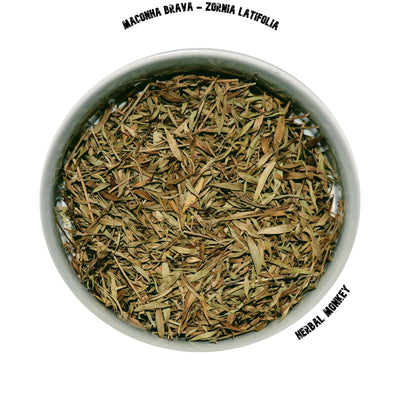
Explore the unique properties and uses of Maconha Brava leaves in this informative blog post.
Maconha Brava is a plant native to South America, particularly Brazil.
It is known for its psychoactive properties and has been used for centuries by indigenous tribes for spiritual and medicinal purposes.
The plant belongs to the Solanaceae family and is closely related to other well-known plants such as tobacco and tomatoes.
In this section, we will delve deeper into the history and background of Maconha Brava.
Maconha Brava leaves have long been recognized for their medicinal properties.
One of the key compounds found in these leaves is called zornia, which has been shown to have anxiolytic and sedative effects.
This makes Maconha Brava leaves a popular choice for those seeking natural remedies for anxiety and sleep disorders.
Additionally, the leaves contain alkaloids that have been found to have anti-inflammatory properties.
In this section, we will explore the various medicinal benefits of Maconha Brava leaves.
Maconha Brava leaves have a rich history of traditional use in South American cultures.
Indigenous tribes have used these leaves for spiritual rituals, divination, and connecting with the spiritual world.
In modern times, Maconha Brava leaves are still used for these purposes, but they have also gained popularity for recreational use and as a natural alternative to pharmaceutical drugs.
Furthermore, the leaves can be brewed into a tea or smoked for their psychoactive effects.
In this section, we will discuss both the traditional and modern uses of Maconha Brava leaves.
If you're interested in trying Maconha Brava leaves, it's important to know how to prepare and use them properly.
To make a tea, you can steep the dried leaves in hot water for several minutes before straining and consuming.
For smoking, the leaves can be dried and crushed into a fine powder, which can then be rolled into a joint or used in a pipe.
It's crucial to note that Maconha Brava leaves should be used responsibly and in moderation.
In this section, we will provide detailed instructions on how to prepare and use Maconha Brava leaves.
While Maconha Brava leaves have many potential benefits, it's essential to be aware of the potential side effects and take necessary precautions.
Excessive use of Maconha Brava leaves can lead to dizziness, nausea, and even hallucinations.
Individuals with certain medical conditions or who are taking specific medications should avoid using Maconha Brava leaves.
It's always recommended to consult with a healthcare professional before using any herbal remedies.
In this section, we will discuss the potential side effects and precautions associated with Maconha Brava leaves.
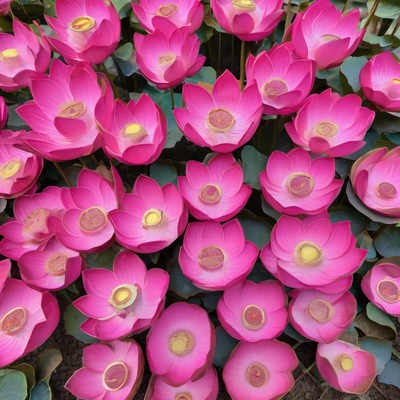
Discover the beauty and symbolism of the pink lotus flower in this captivating blog post.
The lotus flower is a powerful symbol in many cultures and religions. It is often associated with purity, enlightenment, and rebirth. The lotus grows in muddy waters, yet it blooms beautifully and untainted by its surroundings. This represents the ability to rise above adversity and find inner peace and enlightenment.
In Buddhism, the lotus is considered a sacred flower and is often depicted in artwork and sculptures. It symbolizes the journey of the soul from darkness to light, and the path to enlightenment. The lotus also represents the purity of body, speech, and mind.
In Hinduism, the lotus is associated with several deities, including Vishnu, Lakshmi, and Saraswati. It is considered a symbol of divine beauty, purity, and grace. The lotus is often depicted as a seat for gods and goddesses, emphasizing its importance and significance in Hindu culture.
The lotus flower is also a common symbol in Egyptian mythology. It is associated with the sun, creation, and rebirth. The lotus was believed to emerge from the primordial waters of chaos and give birth to the sun god, Ra. It represents the cycle of life, death, and rebirth.
Overall, the lotus flower carries deep symbolism and meaning in various cultures. Its beauty and resilience serve as a reminder to embrace life's challenges and find inner peace and enlightenment.
The pink lotus is a special variation of the lotus flower that holds its own meaning and significance. It is often associated with love, compassion, and beauty. The pink color represents femininity, grace, and tenderness.
In Buddhism, the pink lotus is believed to symbolize the highest level of spiritual attainment. It represents the enlightened mind and the purity of the heart. The pink lotus is often depicted in artwork and statues of enlightened beings, such as the Buddha or Bodhisattvas.
In Hinduism, the pink lotus is associated with the goddess Lakshmi, who is the goddess of wealth, prosperity, and beauty. It is believed that the pink lotus blooms wherever Lakshmi resides, symbolizing her blessings and abundance.
The pink lotus is also seen as a symbol of love and compassion in many cultures. It represents the unconditional love and kindness that one should strive to cultivate in their own lives.
Overall, the pink lotus holds a special place in the hearts of many, representing love, compassion, and spiritual enlightenment.
The cultural significance of the pink lotus varies across different regions and countries. In China, the pink lotus is associated with purity, harmony, and good fortune. It is often depicted in Chinese art and is considered a symbol of elegance and beauty.
In Japan, the pink lotus is known as the 'Sacred Lotus' and is associated with Buddhist teachings and enlightenment. It is often depicted in Japanese art and is considered a symbol of purity and spiritual awakening.
In India, the pink lotus is highly revered and is often associated with various Hindu deities, such as Lakshmi, Saraswati, and Ganesha. It is considered a symbol of divine beauty, grace, and prosperity.
In Egypt, the pink lotus is associated with the sun god, Ra, and is considered a symbol of creation and rebirth. It represents the cycle of life and the eternal nature of the soul.
Overall, the pink lotus holds cultural significance in various regions, representing purity, beauty, and spiritual enlightenment.
The pink lotus flower has been a popular subject in art and literature throughout history. It has been depicted in paintings, sculptures, poems, and stories, symbolizing various themes and ideas.
In Chinese art, the pink lotus is often portrayed in traditional ink paintings and is considered a symbol of purity, elegance, and feminine beauty. It is also a common motif in Chinese poetry, representing love, grace, and spiritual enlightenment.
In Indian art and literature, the pink lotus is often depicted as a divine flower, associated with gods and goddesses. It is a popular subject in Hindu mythology and is considered a symbol of beauty, grace, and purity.
In Buddhist art, the pink lotus is often depicted in paintings and sculptures of enlightened beings, such as the Buddha or Bodhisattvas. It represents the highest level of spiritual attainment and the purity of the heart.
Overall, the pink lotus flower has inspired and captivated artists and writers across different cultures, symbolizing beauty, spirituality, and the pursuit of enlightenment.
If you're interested in growing pink lotus flowers, here are some tips to help you get started:
1. Choose a suitable location: Pink lotus flowers thrive in full sun and prefer to be planted in shallow water, such as a pond or container. Make sure the location receives at least 6 hours of direct sunlight each day.
2. Prepare the soil: Pink lotus flowers prefer muddy or loamy soil. You can create a suitable planting bed by mixing clay, sand, and compost.
3. Plant the tubers: Pink lotus flowers are grown from tubers, which should be planted in the soil with the growing tips facing up. Make sure to cover the tubers with a layer of soil to protect them from birds or pests.
4. Provide adequate water: Pink lotus flowers need plenty of water to thrive. Keep the soil moist, but not waterlogged. You can use a hose or watering can to water the plants regularly.
5. Fertilize regularly: Pink lotus flowers benefit from regular fertilization. Use a slow-release fertilizer designed for aquatic plants, following the instructions on the package.
6. Prune and maintain: Remove any dead or yellowing leaves to promote healthy growth. You can also trim the stems to control the size and shape of the plant.
By following these tips, you can enjoy the beauty of pink lotus flowers in your own garden or water feature.